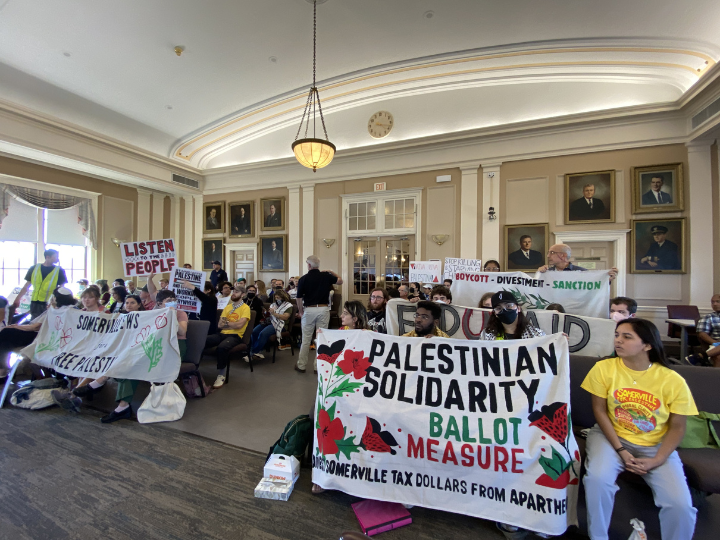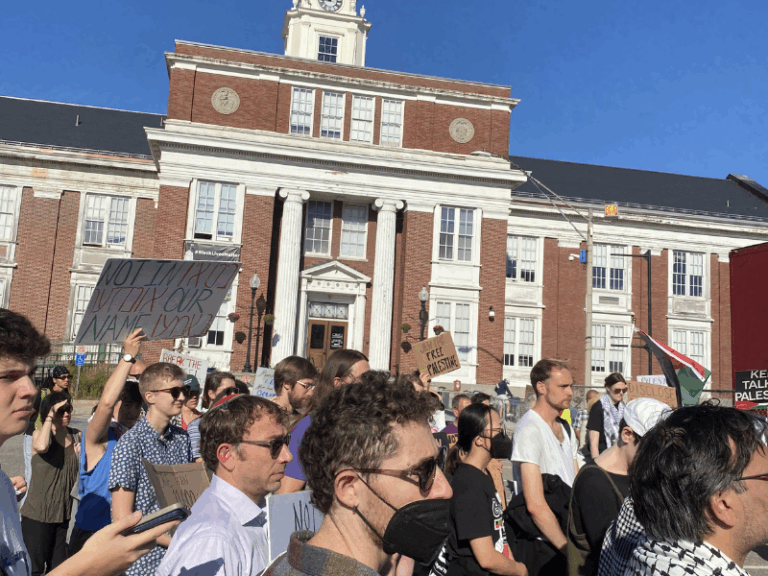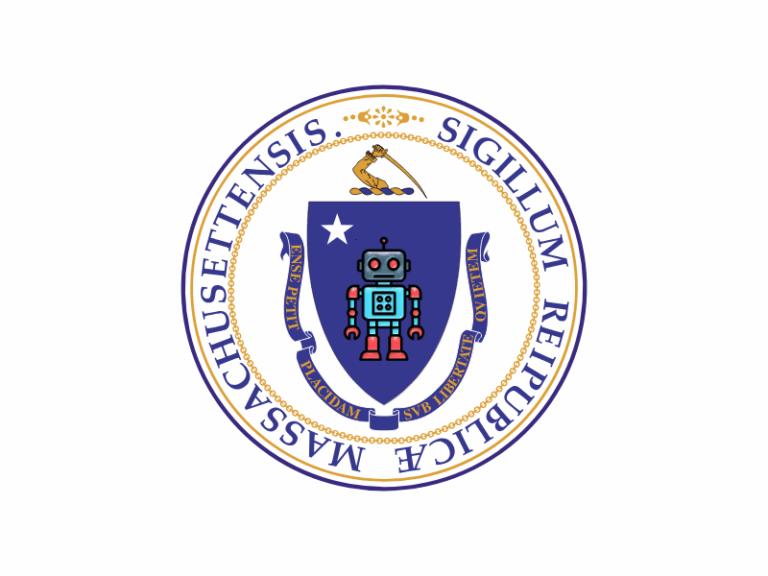A committee backed by the ADL and a resigned city councilor tried, and failed, to invalidate signatures needed to get the measure on the ballot
Somerville, Mass. – Just over a week ago, many Somerville residents found mailers on their doorstep telling them to vote against a ballot measure on November 4. Which ballot measure? The mailers, distributed by a group called Focus on Somerville, don’t say, they just indicate that “you may have heard” of it.
The mailers were paid for by Somerville United Against Discrimination, a group funded by the Anti-Defamation League and wealthy Greater Boston residents, according to a required disclaimer on the mailers. Though the mailers don’t go beyond saying the measure “does not actually help Palestinians,” it’s clear they refer to a measure that would act as a nonbinding call for Somerville leaders to end business with companies that engage in “business that sustains Israel’s apartheid, genocide, and illegal occupation of Palestine.”
The measure is quite popular—Somerville Boycott Question for Palestine Committee, the group that officially submitted and supports it, collected over 11,000 signatures to get the measure on the ballot, equivalent to 13% of the city’s population. Over a third of the candidates running for Somerville City Council seats in the upcoming election have pledged to vote yes on the measure, as did mayoral hopeful Willie Burnley Jr. Only one city council candidate explicitly said they wouldn’t.
At a Monday hearing, the Somerville Elections Commission overturned an October 2 SUAD attempt to invalidate over 8,000 of the signatures, which would remove the measure from the ballot. Testimony in support of the measure came from Sen. Patricia Jehlen, Rep. Mike Connolly, and City Councilors Burnley Jr., Will Mbah, Ben-Ewen Campen, and Naima Sait.
During the hearing, protesters organized by community group Somerville for Palestine filled the chambers after a protest outside city hall. “The presence of the community underscored the popular support for the question and the desire to vote on it,” said Somerville for Palestine member Leila Skinner.
SUAD also has support from Judy Pineda Neufeld, a former Somerville city councilor who resigned on June 30. Two days later, she donated $1,000 to SUAD. Pineda Neufeld has been sending mass texts to Somerville residents, in which she says she leads the group, urging people to vote against the measure. Her exact involvement is “a little unclear,” said Lucy Tumavicus, treasurer of the Somerville Boycott Question for Palestine Committee. Pineda Neufeld did not respond to a request for comment.
In those texts, Pineda Neufeld says opposition to the measure has received over $150,000 from 130 donors, meaning an average donation of over $1,000. The stand-out name among those donors is the Anti-Defamation League, which has redirected its work “to target pro-Palestine activism rather than focusing on antisemitism in American life,” in recent years, according to former staffers. The ADL has also ramped up pro-Israel lobbying since 2023.
By comparison, support for the Palestine solidarity ballot measure is grassroots, and hasn’t involved much fundraising, Tumavicus said. At the Monday hearing, she said 288 people have volunteered to support the measure.
“We have wealth in people, in people’s heart and moral clarity on this issue,” Skinner said, “I honestly think no amount of money can compete with that.” Somerville for Palestine, which formed in response to the 2023 start of the genocide in Gaza, is run entirely by volunteers.
Since the measure is nonbinding, it wouldn’t immediately end all business with complicit companies. “A logical next step, if and when the ballot question passes,” Skinner said, “is for the council to take the mandate of their constituents and pass an ordinance that would be binding.” That implementation would require collaboration within the city’s finance department.
It wouldn’t be the first divestment ordinance in Somerville. In 2020, the Somerville City Council passed an ordinance to prohibit the use of prison labor following that year’s Black Lives Matter protests. Somerville for Palestine also successfully advocated for a January 2024 resolution calling for a ceasefire in Gaza. “[It] was in no way an easy get,” Tumavicus said. “That required a lot of advocacy and deep, emotional conversations with councilors.”
“Somerville is part of this growing trend of people taking action into their own hands and doing the bare minimum to stop Israel’s violence against the Palestinians,” Skinner said, referencing Gaza Freedom Flotillas. If the measure gets the votes, and a binding ordinance passes, the city would become the third in Massachusetts to divest, following Medford in August and Northampton in September. “We do believe this has the potential to have a watershed effect,” said Tumavicus.
Opposition to the measure seems to agree: “If we lose,” a mid-September text from former councilor Pineda Neufeld reads, “similar campaigns will spread across Massachusetts and around the country.”





